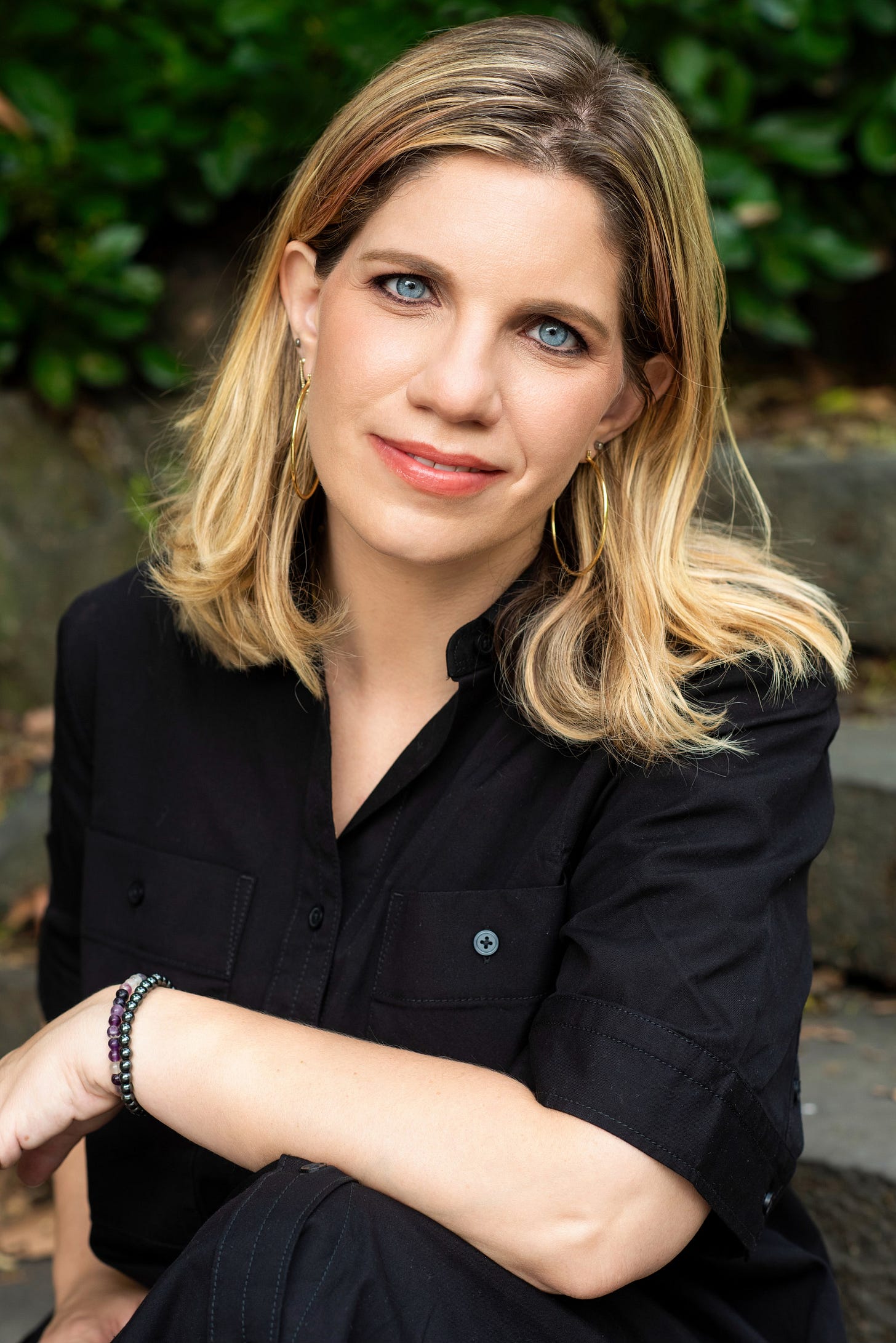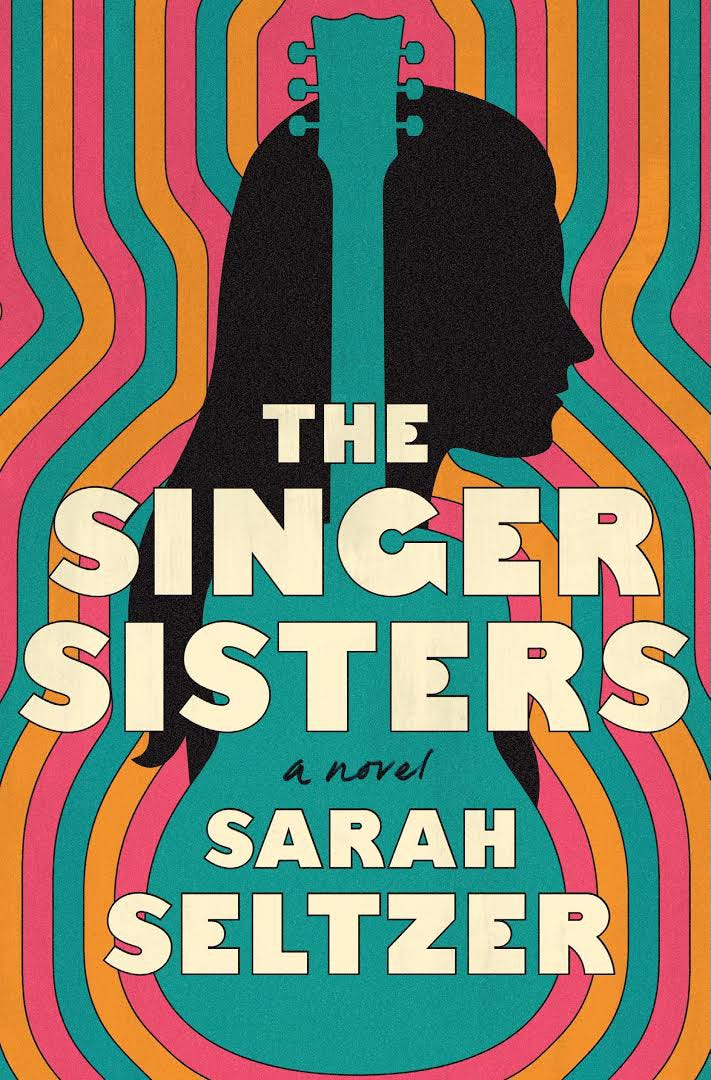It’s two weeks until CAVE OF SECRETS, my second novel, launches into the world. I’m so excited, and proud of this story, set in Scotland and Michigan, and with themes of identity, belonging, love and ancestral acceptance. Please celebrate with me!! Either at the virtual launch or the in-person launch party, both on Tuesday, August 27th. Registration links below:
Virtual Book Launch, Cave of Secrets
In-Person Launch Party, Cave of Secrets
And check out the Spotify playlist I made to accompany this story.
Meet Sarah Seltzer
Every few weeks, I like to feature a fellow author whose work focuses on important themes. This week, I’ll be profiling Sarah Seltzer, an editor at the Jewish feminist Lilith Magazine and author of the new novel, The Singer Sisters, which is described as follows: “This is the novel for you if you’ve ever listened to a Joni Mitchell record on repeat, or think longingly of Lilith Fair (or wish you had been to Lilith Fair) or obsess over Taylor Swift and boygenius lyrics and wonder what happened between Dylan and Baez, between Carly Simon and James Taylor, Beyonce and Jay-Z and Mick and Marianne.”
I like to devote time and space to other authors on my Substack because I believe it helps to learn about other writers’ journeys, obstacles and successes, as a way to understand and be patient with our own. Plus, I like to celebrate other authors. The more love we send out into the world, the more the world becomes a positive, supportive place.
When I asked about her first memory of writing, Sarah had this to say:
I was cursed at a young age by being told I could write well. My claim to fame as a first and second grader was writing rhyming poetry instead of the free verse our teachers were encouraging, which everyone praised, which then gave me a swollen head. But of course it wasn’t just ego—I absolutely loved reading and writing poetry! I did it for fun.
Soon thereafter I encountered Jo March and Emily Byrd Starr (of Emily of New Moon), novel heroines who both dreamed of being writers, and that was it for me. My course was charted!
It’s always interesting to hear what obstacles, pushback or discouragement other writers face. For me, though my dad and I were close, he said, when I proposed going to graduate school for creative writing, “I’ll pay for law school.” I laugh now, knowing he wasn’t trying to pull the rug out from under my creative genius. He just wanted me to choose a more certain career path, and I loved him for it.
So I posed the question to Sarah, and she said this:
I actually encountered a lot of rejection and closed doors in my first years as a freelance writer, while I was also teaching and tutoring to pay the bills. I hadn't gone the traditional route of doing a magazine or newspaper internship, having spent my summers working as a camp counselor or theater usher or backpacking around Europe, so I didn’t have a foothold into the industry. I felt very insecure, but I kept writing, pitching, and submitting, and it was the world of feminist blogging and publications that provided my pathway in.
Most of us write because we can’t not write. We LOVE playing with words, finding ways to express ourselves. We write to figure out the world and make sense of it. That LOVE has to guide the writing, if we are to keep at it and eventually, succeed.
Sarah loves to write dialogue. “It comes easily to me and to be honest, fictional dialogue runs through my head a lot of the time! I mean that in the sanest way,” she says. “In the world of nonfiction, I understand and have a unique feel for short essays, because I’ve edited, written and taught so much in that form that it’s in my veins at this point.”
Sarah’s debut novel The Singer Sisters caught my attention. It’s the story of women in one complicated family of singers, performers and songwriters and their relationships to fame, creativity, caretaking--and each other! Secrets, lies and hit songs all in one package.
Sarah sat on this idea for six years; once she started writing, it came quickly. But then came Covid, family illness, my second baby… and thus, a long hiatus. There had been days during Covid when I actually wept bitter tears because I missed my novel and really thought I’d never get to work on it again, so when I finally did have the time to get back it, I was so happy to be in the thick of it. That gave me courage for the submission process.
It’s not easy to be a career-author. And perhaps because Sarah’s day job is as a magazine editor, she might not see herself fully that way. Indeed, she says, “With writing for publication, there’s so much emotional whiplash. There are long periods of waiting and rejection or being too busy to commit to a project. And it’s not exactly financially stable. But to be creative and imaginative and have people respond to your voice? What an amazing privilege.”
So much of being a career-author is about relationships—the sense that writers help each other out, this karmic chain of giving that is a reward in itself. That’s one reason why I feature authors on this Substack—for the generosity of it, to bring their works to new audiences.
Relationships have been key for Sarah, too. She mentions "Yona Zeldis McDonough, who writes as Kitty Zeldis, as “a true mentor. She edits fiction for Lilith and plucked a short story of mine out of the slush pile, which led to an early short fiction publication and, eventually, my job at Lilith. Then many years later, she introduced me to her agent, the wonderful Susanna Einstein, who sold the book! So she’s been my fairy godmother twice!”
Like many authors, Sarah is “a messy first draft writer, and a messy second draft writer, too. I stop and do research usually around draft two or three. After that, I polish over and over again, and cut and rearrange obsessively until I see stars. This process is pretty consistent for fiction and nonfiction, even for op-eds and journalism!”
Jewish writer to Jewish writer, I asked Sarah what she wants the world to know about Jewish voices today. She said this:
Jewish fiction feels important to me, now and always, because it reminds the world that Jews are no better or worse than other people. We are not a symbol of suffering or a symbol of righteousness or purity or greed or any of the things the 19th century novelists painted us as and today, memes on the internet might paint us as.
We’re just people, no more and no less.
In parting words, Sarah Seltzer offers this advice to aspiring writers:
Take a few days or as long as you reasonably can to respond to edits you don't like, and see if you’re still as mad as you were when you first encountered those suggestions.
Thanks for reading the Rebel Author Newsletter! I share insights and information weekly on Mondays about writing and publishing. If you have a question you’d like answered or a writing-related topic you’re curious about, please message me and I’ll do my best to focus on it in a future issue. If you like what you read here, I’d sure appreciate the support of a paid subscription. That enables writers like me to make a living from our writing. I also give away free books to my paid subscribers! (August giveaway is The Woman Beyond the Sea by Sarit Yishai-Levy. Subscribe now to add your name to the drawing!!!)







Lynne, you're doing a real mitzvah by interviewing fellow authors. Kol HaKavod.